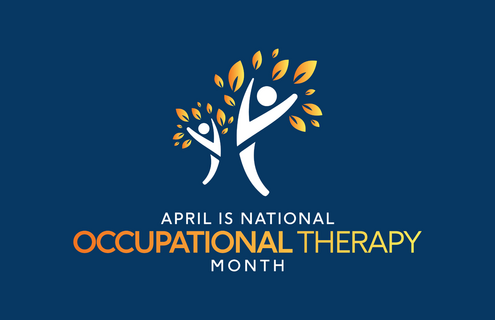
You may not realize it — but you may have had occupational therapy (OT) at some point during your lifetime.
According to the American Occupation Therapy Association, occupational therapy enables people of all ages to participate in daily living. If you’ve had surgery, an accident or fall, or have a chronic health condition, you’ve probably benefited from inpatient or outpatient OT services.
“In the realm of cancer care or other chronic diseases, OT helps with energy conservation techniques as well as adaptations to make the activities of daily living easier to carry out,” said Kirsten Eastman, Manager of Rehabilitation and Occupational Health at APD. “If you are recovering from surgery, OT can help with scar management, range of motion, decreasing swelling, and increasing strengthening and function that may be limited following surgery.”
Related Article: 9 Ways to Help Lymphedema
Occupational therapists have completed a master’s degree in occupational therapy, passed a national exam, and licensed by the state. Many OTs choose a specialty and acquire specialty certifications in areas such as pediatrics, autism, hand therapy, brain injury, feeding, to name a few.
Depending on what a patient needs, occupational therapists may provide recommendations for:
- Activities of daily living (such as bathing, dressing, and eating)
- Adaptive equipment (such as shower chairs or assistive devices)
- Planning and making the most of daily routines
- Returning to work, school, and leisure activities
- Techniques to aid in memory, concentration, and executive functioning (for example, planning and prioritizing)
- Home safety, such as falls prevention, and accessibility
Occupational therapy services can be critical for patients of all ages.
“OT can help with aging by developing strategies to maintain independence despite limitations that may occur due to decreased mobility, range of motion, and/or strength,” Eastman said. “Children may need help with the fine motor and the visual motor skills necessary for reading and writing as well as attentional and sensory processing challenges that can make learning more challenging. If there are physical limitations, OT can help kids with strategies to access the environment and develop adaptations to be able to engage in a variety of learning activities.”
And OT could make all the difference after an accident, injury, or trauma.
“I worked with an individual who was in law enforcement and had to have the end of his finger surgically reattached,” Eastman said. “It was a painful recovery but he was able to get significant functional use of his finger back and return to work.”